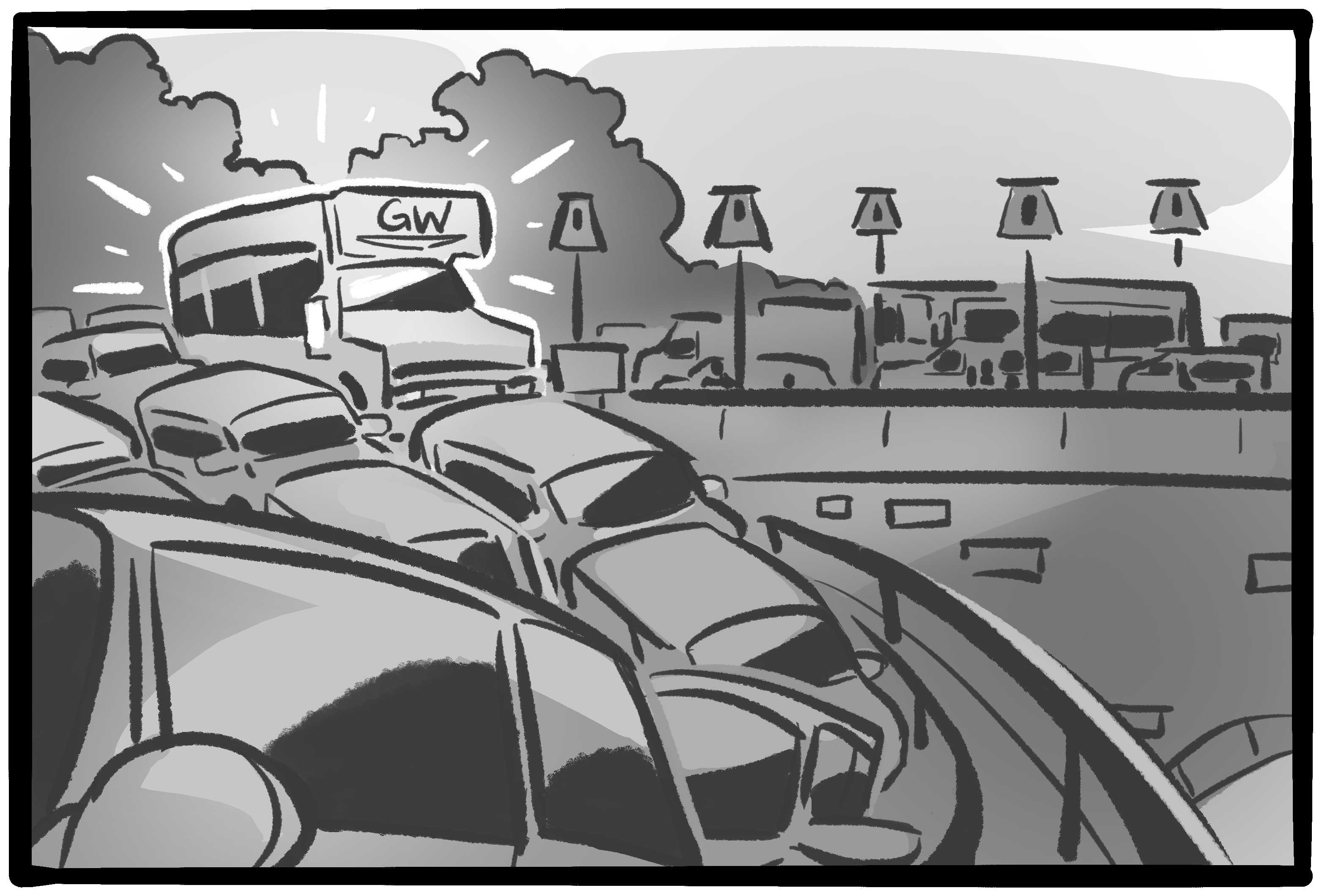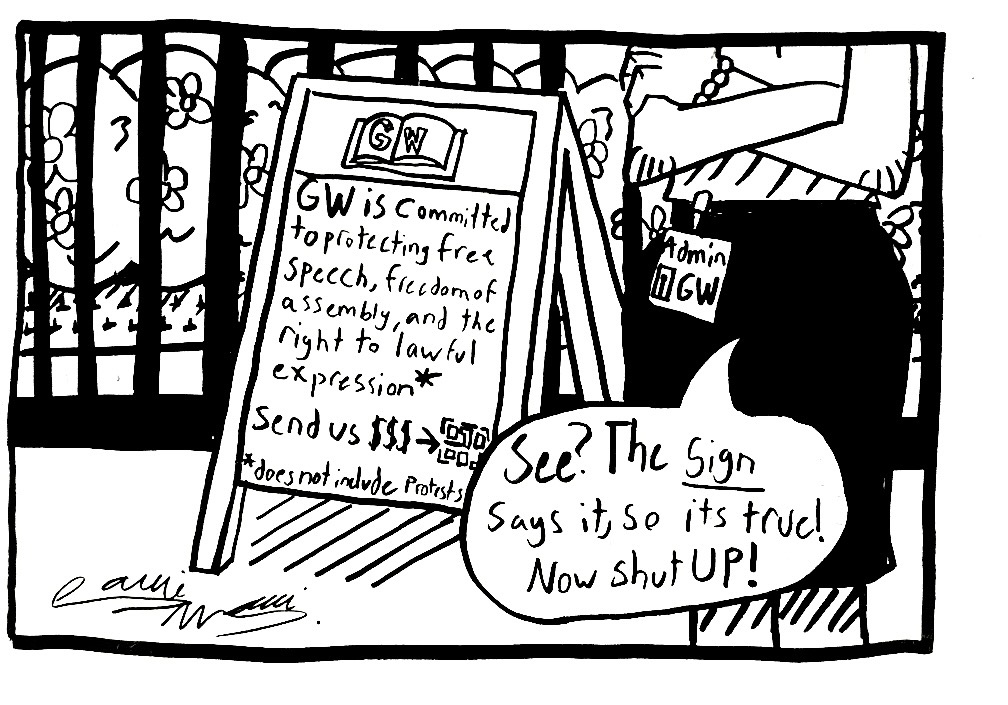A few days after I arrived on campus for my freshman year, I was standing outside the U.S. Capitol Building with a friend wondering aloud if living on the Mount Vernon Campus would leave me detached from the rest of GW. A woman behind me eavesdropping on the conversation turned around to say that living on the Vern was the reason she transferred out of GW.
I spent some time that day deliberating whether I had made the right decision to live on the Vern. I know without a shadow of a doubt that I made the right decision for me. Nevertheless, after spending nearly a full academic year on the campus, I understand why the former student may have decided to leave. The Vern can isolate students from the rest of campus life, and it is often difficult to find affordable dining options. Her thoughts have merit, but I have still enjoyed the campus’ quiet location away from an otherwise busy city campus.
The University is not going to tell you everything you need to know about the Vern. Its websites are not going to say you may spend an hour traveling from Foggy Bottom to the Vern during rush hour or that you will have fewer dining options than the main campus. These factors have not prevented me from enjoying my life on the Vern, but prospective students should at least keep the details in mind during their tour of campus. Incoming freshmen should hear out both the positives and negatives of the Vern that the University won’t advertise before ranking their first-year housing preferences.

Cartoon by Jeanne Franchesca Dela Cruz
Unlike Foggy Bottom, students on the Vern will live on a suburban campus with wildlife like deer occasionally roaming around and trees displaying foliage during the fall. I come from a small town in New York, so I was nervous about rushing into living in the heart of a city, but living on the Vern was a way to balance the bustle of city life with some peace and quiet.
Another benefit of living on the Vern is the housing options. West Hall is the only freshman residence hall on both Foggy Bottom and the Vern with single bedrooms attached to a common area and a bathroom. It is a far cry from Thurston Hall where up to six students could be crammed in a residence hall room. But for students that want to live closely with their peers, the Vern also houses freshmen in Clark, Cole, Hensley and Merriweather halls, which are collectively called the Hillsides.
But students should also weigh the downsides of the Vern. While students may get their own bedroom and enjoy the peace and quiet, the campus can also feel isolating at times. The Vern Express leaves from Foggy Bottom to the Vern during the day every five minutes, but the rides are often long and could take up to an hour out of your day. The Vex often makes it difficult to engage with student organizations that hold most of their meetings in Foggy Bottom. Late at night or on the weekends, the Vex can also be harder to catch because it leaves on quarter- or half-hour intervals instead of every five minutes.
Dining options on the Vern are also relatively scarce. Pelham Commons, which serves all-you-can-eat meals for lunch and dinner, in addition to Sunday brunch, is the only dining hall at the University. Residents of the Vern are lucky that is located near their homes, but it’s also one of the only dining options on the Vern. In addition to Pelham Commons, the Vern offers Higher Grounds Cafe, which serves breakfast, lunch and Starbucks coffee. But the Vern’s only nearby grocery store that accepts GWorld, Safeway, is closing in less than a month, which will force residents to purchase their groceries at Whole Foods on Foggy Bottom instead. Between the two main campuses, Foggy Bottom has dozens of dining vendors located just steps from students’ residence halls while the Vern offers two. Students should understand these differences when deciding between Foggy Bottom and the Vern.
For all its flaws, I still enjoy the calmness of the Vern. But students should have all the facts in front of them before they rank their housing preferences, both the good and the bad. Maybe if the former student I ran into at the Capitol knew all its pros and cons before she arrived on campus, she would not have left GW altogether.
Andrew Sugrue, a freshman majoring in political science, is a Hatchet opinions writer.
Want to respond to this piece? Submit a letter to the editor.


